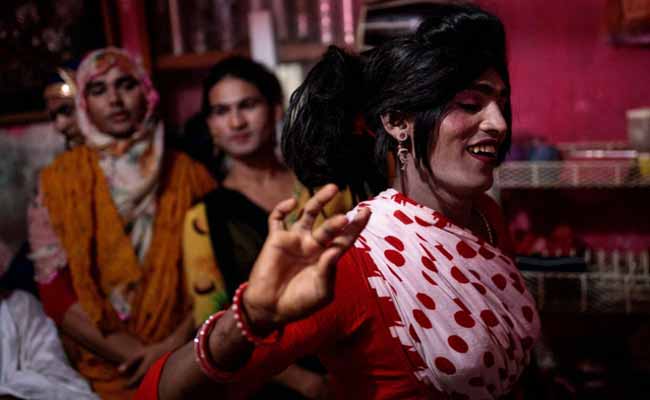
bdmetronews Desk ॥ It’s early afternoon in a dilapidated two-bedroom house in the old town of Dhaka, the capital of Bangladesh. Bengali music crackles out of an old speaker as members of the household practice their dance moves in the narrow street.
Others in the group laugh noisily as they exchange gossip, the sounds and smells of cooking wafting through the air.
Shanta meticulously applies chalk-white foundation to her cheeks and touches up the black eyeliner which frames her dark eyes. It’s a scene of everyday domesticity but Shanta and her friends are not ordinary young women – they are Hijra, born as male but now belonging to a third gender.
There are members of this group across South Asia but in Bangladesh alone there are thought to be between two and three million.
They are the oldest transgender community in the world, with records of their existence dating back to the two ancient Hindu texts of the Kama Sutra and Mahabharata, published in around 400BC.
Historically, the group were revered and occupied an almost mythical place in South Asian society. The Hijra belonged to their own holy caste and held a range of diverse and important ceremonial roles. The Mughal Empire that ruled over the majority of India during the 17th century – and built the Taj Mahal – owed much of their power to their feared Hijra bodyguards.
“In the 19th century Hijras’ forms of work included collecting badhai (congratulatory gifts) and performing, especially in households following births and at the time of weddings, as well as in public,” says Jessica Hinchy, an expert on the community at the Nanyang Technological University in Singapore. The colonial government classified the Hijra as “eunuchs” and they were able to work in a variety of occupations including as farm and domestic labour.
But in recent years the Hijra have lost their status and are living on the outermost fringes of society. One reason for this is Bangladesh’s increasingly hardline government, led by Prime Minister Sheikh Hasina.
In order to pander to rising Islamic fundamentalism and to preserve a fragile ruling coalition which includes Islamist parties, Hasina has turned a blind eye to both bigotry and violence towards the Hijra.







